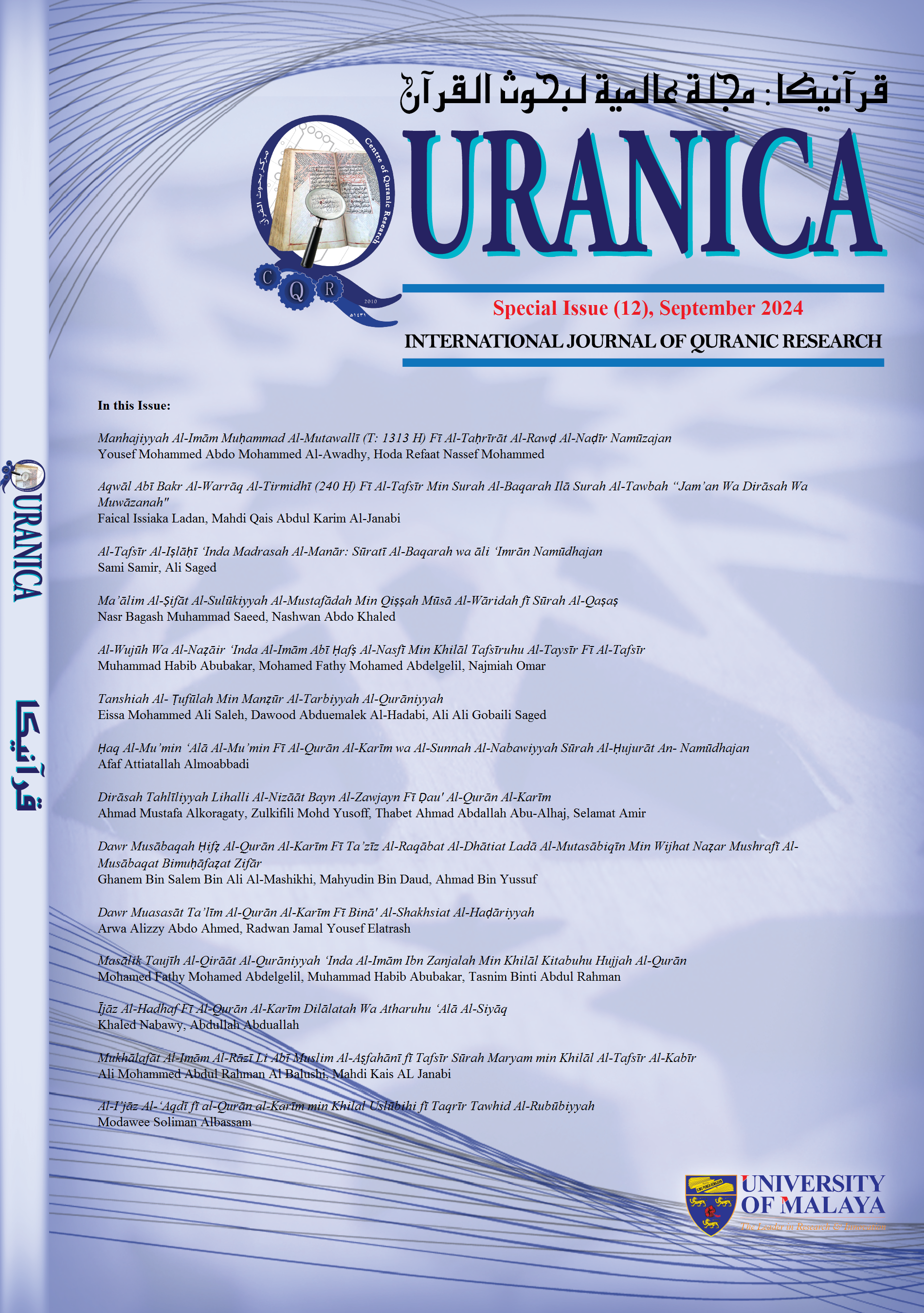Mukhālafāt Al-Imām Al-Rāzī Li Abī Muslim Al-Aṣfahānī fī Tafsīr Sūrah Maryam min Khilāl Al-Tafsīr Al-Kabīr
Main Article Content
Abstract
The study aims to elucidate Imam Al-Razi's disagreements with Abu Muslim Al-Isfahani, focusing specifically on their differing interpretations of Surah Maryam, in which Al-Razi opposed the views of the majority of scholars. The research outlines these disagreements, presenting the opinions of both imams and the stance of the majority of scholars on each issue. It then proceeds to determine the preponderant view between the majority of scholars and Abu Muslim. These disagreements are found in five specific places within the Surah. The research problem arises from the fact that some scholars of exegesis interpret the verses of God according to the philosophical perspectives they have adopted, as exemplified by Abu Muslim Al-Isfahani, who followed Mu'tazilite thought. This necessitates an examination of the validity and acceptance of his views, and the extent to which reconciliation is possible between the opinions of Abu Muslim Al-Isfahani and Imam Al-Razi. The researcher adopts an inductive, analytical, and deductive methodology, systematically tracing the disputed issues between Al-Razi and Abu Muslim Al-Isfahani. The study reaches several conclusions and recommendations, most notably that Fakhr Al-Din Al-Razi’s exegesis is one of the important works in praiseworthy opinion-based interpretation. It is a large and comprehensive tafsir, where Al-Razi elaborates extensively on issues and discussions, bringing a new method of organizing his work. In his tafsir, Mafatih Al-Ghayb, Al-Razi addressed jurisprudential and theological matters, occasionally discussing Quranic readings and grammatical issues, while also employing traditional exegesis, supporting his interpretations with evidence from the Quran, the Sunnah, and the statements of the Companions and Followers, although his tafsir is predominantly based on reasoned opinion. Imam Al-Razi differed from Abu Muslim Al-Isfahani in five issues in his interpretation of Surah Maryam, and the researcher favored Al-Razi's view in most of these cases. The study recommends increased focus on the themes of Quranic interpretation, with an emphasis on examining the differences among exegetes and assessing the strengths of their views to expand the circle of knowledge concerning the Book of God, thus providing a clearer understanding of all meanings and interpretations for readers of the Quran.
Downloads
Article Details
Disclaimer
QURANICA makes every effort to ensure the accuracy of all its contents. However, opinions, discussions, views and recommendations are expressed in this journal do not necessarily reflect the official policy of QURANICA or views of its editors or publishers. Therefore, QURANICA and its publishers will not be liable for any controversy may be arisen. The journal reserves the right, at its sole discretion, to change its terms and conditions of publications.
Copyright
It is a condition of publication that manuscript submitted to the journal have not been published, accepted for publication, nor simultaneously submitted for publication elsewhere. By submitting a manuscript, the author(s) agrees that copyright for the article is transferred to the publisher, if and when the manuscript is accepted for publication.
